• Don't insult other visitors. Offensive comments will be deleted without warning.
• Comments are accepted in English only.
• No swearing words in comments, otherwise such comments will be censored.
• Your nickname and avatar are randomly selected. If you don't post comments for 7 days, they both are reset.
• To choose another avatar, click the ‘Random avatar’ link.

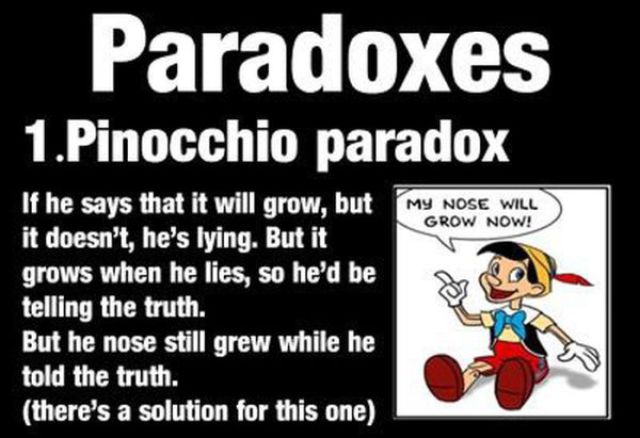
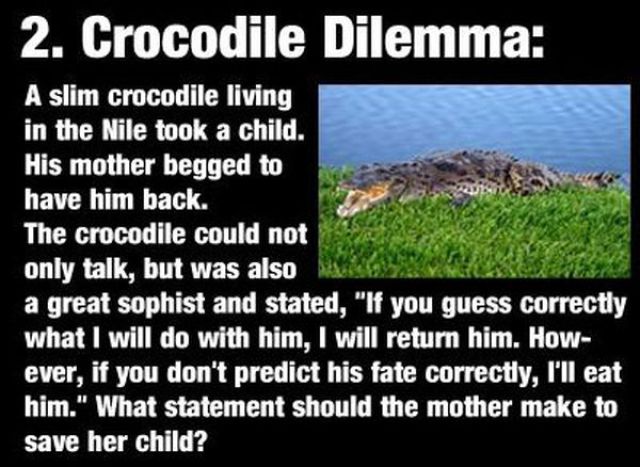
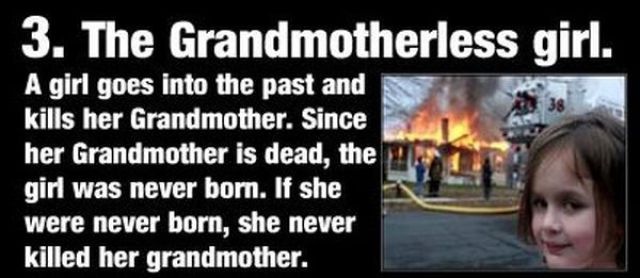
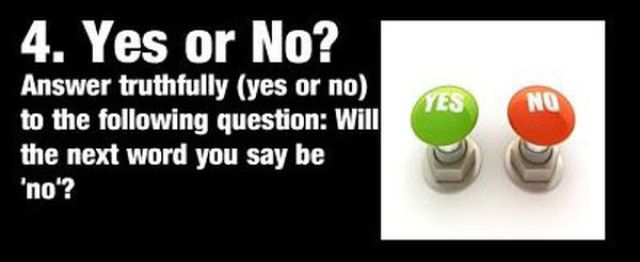
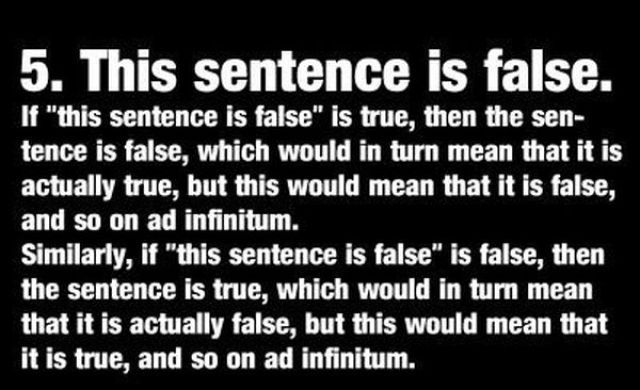



His nose grow when he lies, and also grows when he tells the true.
2. She have to say: you will give him back to me. Since that whats happens if
she can predict the fate correctly.
3. There is no condition that said she killed her own grandmother after her mother were born.
4. correct answer is: no, no.
5. so the sentence could be either true of false. It does not have a binary logical statement.
just because it is exist it does not mean we can make statements about it.
So existence =/ logical value
For number 4, the work around is to say no in another language, there for not actually saying "no".
There was a Star Trek episode (I, Mudd) that employed such constructions: Spock drove two identical automata nuts by asserting that he loved one, yet hated the other.
Also, Kirk, in an attempt to escape the androids, tells Norman, the central controlling unit, that Mudd is a liar. Mudd then says that everything he (Mudd) says is a lie. But if Mudd is a liar, then everything he says is a lie, but it can't be - because the statement he made about being a liar is true - but if the statement he made is a lie, then Mudd is telling the truth - but be can't be because he is a liar - ad infinitum. Norman apparently lacked a meta-language with which to consider the paradox, and the resulting logical conundrum resulted in a feedback loop, frying Norman's circuits.